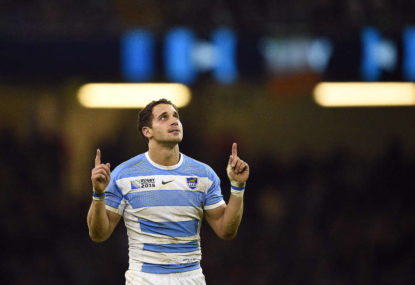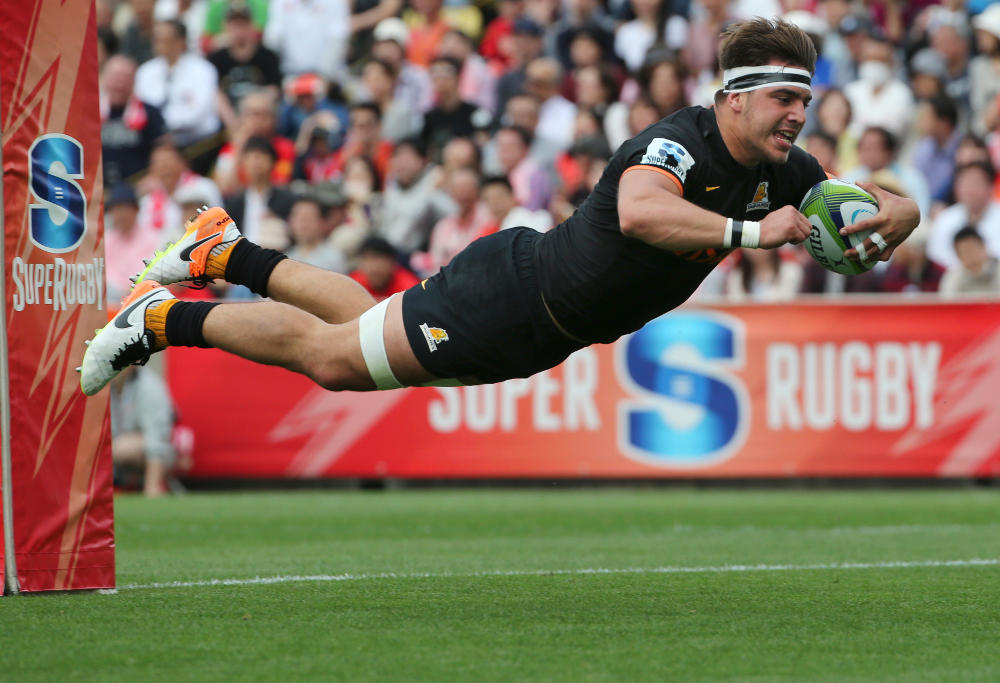'Ready to go': Jaguares set for early return to Super Rugby if Rebels fall over
Six months after Argentina rugby president Gabriel Travaglini revealed the Jaguares had been invited to return to Super Rugby in 2026, Super Rugby officials…

Raise your hand if you had the Jaguares tipped to be a genuine top-eight chance in their inaugural year of Super Rugby.
You weren’t too crazy to think this, in fact, it was the general consensus for a lot of groups of rugby enthusiasts, myself included. Obviously, this format is completely different and a lot harder than the competition these players would have been used to, so I’m happy to admit my expectations were set a bit too high.
The Argentinians’ contracts were mostly either in France or Argentina, where the games are all played in the same country. The Jaguares, conversely, were exposed to the harsh realities of travel in the southern hemisphere’s primary tournament, where getting comfortable and setting up camp in one country rarely seems to last more than two or three weeks in a row.
However, the Jaguares boasted a team comprised primarily of Test match players and so the idea of travel wasn’t foreign to them. Instead, it appears the change in coaching made the most radical difference between the club and the national team. Daniel Hourcade has taken the Pumas to a top-tier team and their ability to strike at any given time has them ear-marked as a genuine threat against any opponent.
They’ve proven their worth with impressive performances, earning wins against Ireland, France and even South Africa, among others, in the last 12 months. The exposure to the Rugby Championship has been monumental in developing their team, though this exposure seemed to have done little to help the Jaguares in their maiden year of Super Rugby.
The Jaguares managed just four wins out of 15 appearances in an uninspiring debut year. Looking back at the season that was, there is little to get excited over.
The Jaguares opened their account with a close 34-33 win over the Cheetahs with Martin Landajo, Nicolas Sanchez and Agustin Creevy illustrating their leadership qualities in directing their team to a handy start. However, the reality is that the Cheetahs aren’t the bar for success that you should be aspiring to measure yourself against.
The Sharks, Chiefs, Stormers and Blues were the next four opponents, and although hard-fought games, not once did they make the most of all their chances. The games all went down to the wire, but not once did the Jaguares look composed enough to close out a win.

The coaching style of Raúl Pérez meant that the natural free-flowing attacking style of the Pumas was stifled by the desire to take the points on offer and to play with a slightly more restrictive passing and kicking game.
Challenges in the form of the eventual champions, the Hurricanes, and perennial high-performers, the Crusaders, meant the Jaguares were dealt their first two big losses, where they simply weren’t in the game at all. A blown chance against a Sunwolves team much weaker on paper was barely redeemed when they dominated the Kings in a performance that further showed why this sixth South African team should be nowhere near this competition.
It took another three losses until the Jaguares produced their first win against strong opposition, putting the Bulls away 29-11. A consolation win against the Lions in the final round, after they had rested the majority of their starting team in preparation for the finals, left a lot to be desired from the Argentinians.
What positives can we take from this season going into 2017 though? The biggest thing for me is the partnership between Landajo and Sanchez. The combination they have built reminds me of the combination between Conor Murray and Jonathon Sexton for Ireland, where if those two are firing, the whole team is on the front foot.
The kicking and playmaking game of Sanchez is bolstered superbly by the accurate passing and speed to the breakdown of Landajo, a player with the attacking mindset of TJ Perenara and the speed and accuracy of passing to back it up as one of the best halves in the Super Rugby competition.
Additionally, the Jaguares were able to explore the skills of some of their non-Test players and make relatively wide use of their entire squad over the course of the season. Not only will this hold these rookie players in good stead for next year, but the depth at international level is one of the main aspects holding the Pumas back from that world-beating status they crave, so the more exposure these players can get against the best in the southern hemisphere, the better off they’ll be when they join to face other heavyweight teams as a nation.
My good friend Mr Newton said to me, in confidence, that every action has an equal and opposite reaction. For the Jaguares, this means the exposure given to undeveloped players resulted in some of their most imposing and dynamic men being benched or dropped altogether. This means that, instead of potentially claiming some wins and building confidence and morale among the team, close losses were accumulated that could have, in my opinion, been avoided.
Looking at some of their go-to players, it becomes apparent that Matias Alemanno, Agustin Creevy, Ramiro Herrera and Joaquin Tuculet only played 11 of the 15 games. That’s not too many missed opportunities, though, right? Throw in that Juan Martin Hernandez, Santiago Cordero, Manuel Montero and Leonardo Senatore sat out more than six games each and you can see why the Jaguares came away from games without the result they were after.
All eight of the aforementioned players are men that I’d have in my ideal Jaguares starting XV, if not, then definitely within the 23.
The struggle for next year will be combining the best of both worlds. Ensuring that a lot of the squad obtains some exposure and delivers some impact is important, but even moreso is ensuring that the wins are coming in frequently and impressively.
Which players do you think were the standouts for the Jaguares this season and which players, based on the Rugby Championship form of the Pumas, can we rely on to lift the overall performance of the Jaguares in 2017?